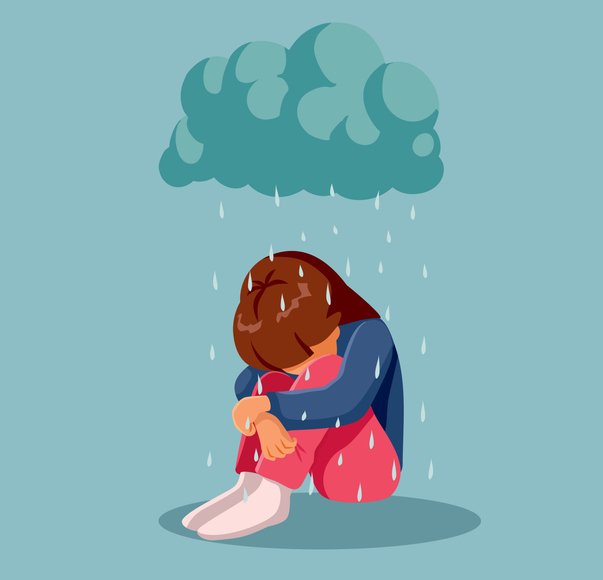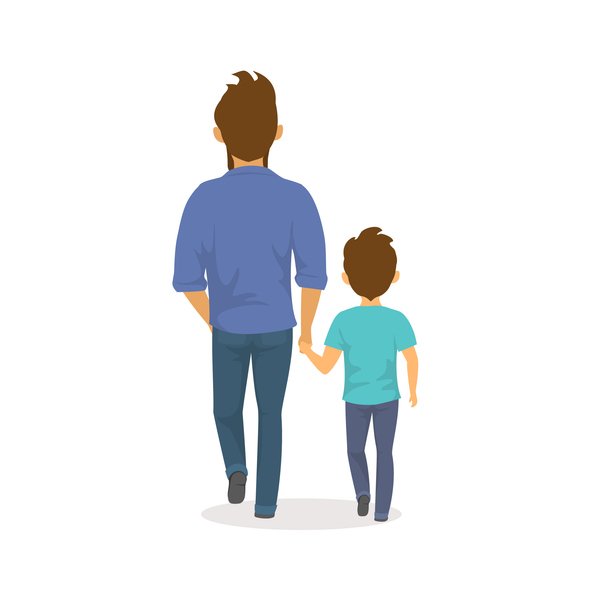How to Heal Your Inner Child Using Internal Family Systems (IFS) Therapy
Internal Family Systems (IFS) Blog Series - Part 3 of 3
This is the final post in a 3-part blog series on IFS, a therapy that helps you understand and heal those parts of yourself that hold pain and keep you stuck.
In the first blog (https://centreformindbodypsychotherapy.ca/what-is-emdr-anyway/how-internal-family-systems-ifs-therapy-works-and-benefits-you), I talked about how according to IFS Therapy your inner world is made up of 3 parts: Exiles, Managers, and Firefighters. Exiles are your most vulnerable parts (most often young) that hold wounds stemming from past trauma or pain (e.g., times in your life when you felt humiliated, grief-stricken, terrified, or abandoned). Exiles are often dismissed or forgotten because facing them feels so hard and scary.
Managers and Firefighters are protective parts that work to keep exile’ pain at bay. Managers are proactive protectors that try to prevent exiles from getting hurt again by controlling your relationships and environment (e.g., the Perfectionist, the People Pleaser, the Planner). Firefighters are reactive protectors that spring into action when your exiles are indeed hurt (e.g., the Self-Harmer, the Over-eater, the Rager).
In the second blog (https://centreformindbodypsychotherapy.ca/what-is-emdr-anyway/how-internal-family-systems-ifs-therapy-helps-you-embrace-your-hardest-parts), I discussed ways to befriend and appreciate these protective parts that work so hard to protect your wounded parts. In this month’s blog I will introduce you to the steps involved in unburdening your exiles so you can heal and release their past wounds, and in so doing heal their guardians, using the example of John.
Forgotten exile
Abandoned exile
A Recap of Divorced Dad, John’s Exile
John experiences an exile part of him that feels deeply unworthy, due to his early experiences with critical parents. These early wounds have been compounded by his divorce and work challenges, which amplify his feelings of worthlessness. To protect this vulnerable Unworthy Exile, two parts have emerged within his system: The Critic Manager and the Happy Pig Firefighter. The Critic Manager tries to maintain control and prevent this exile from feeling further pain by constantly criticizing and judging John to keep him in line and prevent situations that might lead to more failure or rejection. Still, the Critic’s severe criticism only reinforces his exile’s deep sense of inadequacy. To counter this, the Happy Pig Firefighter offers John’s exile temporary relief through food indulgence and drink. Despite the efforts of the Critic Manager and the Happy Pig Firefighter, his exile’s deep woundings and feelings of unworthiness persist, leaving John stuck in a cycle of self-criticism and temporary escape without true healing.
The Unburdening Process in IFS Therapy
The Unburdening Process in IFS Therapy involves helping your Exiles release their burdens (e.g., toxic memories, negative beliefs, emotions, and sensations) they carry from their painful histories, which allows for healing and recovery. The key points of the process are:
Witness: The exiled part shows the Self (characterized by the 8C’s of compassion, curiosity, clarity, creativity, calm, confidence, courage, and connectedness) about its experience.
Do-over: The Self comes into that time and space and gives the exile what it needed and wanted at the time but never got.
Retrieve: The Self retrieves the exile from the past and brings it somewhere safe in the present.
Unburden: The exile lets go of toxic sensations, feelings, and beliefs.
Invite: The exile invites any new qualities it wants or needs for the future
Protector Check-in: Protectors are invited to notice that the exile they’ve protected has been unburdened and healed so they can let go of their jobs.
**This process can take several sessions with the support of a qualified social worker or other mental health professional.
Witness
After John befriended his internal protectors (the Critic Manager and the Happy Pig Firefighter), they were willing to step back and let his Self see his exile’s experiences. Before witnessing could start, I supported him in checking for Self-Energy, which was present in the form of curiosity, compassion, and calm. I then guided John in approaching this young, vulnerable part. It began a virtual tour showing John all the harsh and relentless parental criticism it needed to have witnessed; Showing and telling him all the shaming, terrifying, and injuring experiences it endured at the hands of his parents and the toxic beliefs that burden it i.e., “I’m not worthy,” “I’m not lovable,” “I’m not good enough.”
His young self told him of one vivid memory from his seventh birthday, where he spent hours drawing a picture to show his parents, hoping to make them proud. Instead, his father shot him a scornful gaze and said, “You can do better than this. It’s so messy.” His mother disdainfully added, “Why do you waste your time on things like this when you should be studying?.” This child told him he felt not good enough and crushed, his excitement and pride turned into shame and rejection. John visualized himself as a child, holding that drawing. He saw his young self, eyes wide with anticipation and then filled with tears as his parents’ scathing criticism sinks in.
John’s Unworthy Exile
Do-over
I guided John to approach his younger self with compassion. Adult John gently knelt down to his younger self and said, “It’s okay, John. Your drawing is beautiful, and you put your heart into it. I’m proud of you for expressing yourself. You are worthy and lovable just as you are. It’s not your fault your parents were critical. You deserve love, kindness and support.” He hugs his younger self, who starts to cry, releasing years of pent-up sadness and hurt.
Retrieve
John then invites his young self to leave the past and come with him to the present time in a safe place of its choice. His young self chooses to stay in his daughters’ bedroom because it was filled with soft pillows, warm blankets, toys, and books, which feels fun and comforting to it.
Unburden
We ask young John if he is willing to let go of all the toxic thoughts, feelings, and sensations he got from these experiences and he says yes. We offer suggestions like throwing its burdens in the ocean, burning them in a fire, releasing them to the air, burying them in the earth or letting the ocean waves carry them out to sea. Young John imagines giving the feelings of shame, rejection, unworthiness, his self-doubting thoughts, and sensations of heaviness (which he internalized over the years) to a stream, watching them float away. Adult John reassures him, “You are worthy and loved just as you are.” Together they watched the stream carry away these heavy burdens, and young John feels lighter and more accepted. Adult John promises to continue being there for his younger self, providing the love and validation he didn’t receive as a child.
Invite
With those burdens gone, his younger self to invites in valuable qualities he was missing and wants for the future: self-confidence, self-compassion, and connectedness. He chooses self-confidence to recognize his intrinsic worth and valuable abilities, self-compassion to encourage growth and improvement in a kinder and more understanding way; and connectedness to help him cultivate more meaningful relationships to reduce loneliness.
Protector check-in
After we invite John’s protective parts to come in and take a look at the exile part. They are relieved and happy, as John’s exile looks more peaceful and at ease. They also like that the young exile is now safe in the presence of John’s Self. That said, they will continue to watch adult John to see if he can really care for his young part. These parts also worry about being discarded now that they are no longer needed in their roles. John reassures them that they are valued, and we invite them to contemplate new roles in his system. The Critic Manager choose an Encouraging Coach role and the Happy Pig Firefighter chooses to a Self-care Advocate role—to contribute more positively to John’s well-being.
Conclusion
John’s story illustrates the healing potential of the unburdening process in IFS therapy. This process brought a profound transformation in John. The once hidden part of him, burdened with deep feelings of unworthiness and unlovability from having critical, shaming, and frightening parents, finally found validation, safety, and release. Through compassionate self-exploration, he embraced this wounded part of himself, allowing this exile to express its pain and be understood. His journey wasn’t easy, but now he approaches life with greater confidence, self-love, and resilience. His story is a powerful reminder that welcoming and releasing your deepest wounds can lead to profound personal transformation and growth.
If you are interested in exploring IFS therapy in Toronto or Vaughan reach out to me for a free 15 min consult today, the path to healing is available to you.
To Learn More About Healing Your Inner Child (Unburdening Your Exile)
Healing Our Inner Child | Internal Family Systems, Explained Video: https://www.youtube.com/watch?v=Oy6lM8W363Q
Healing Your Inner Child in Detail (aka The Process of Unburdening Your Exile): https://lucasforstmeyer.com/wp-content/uploads/2019/10/Introduction-to-the-Steps-Questions-of-IFS-Therapy-by-Lucas-Forstmeyer.pdf
References
Schwartz, R.C. (2023). Introduction to the internal family systems model. Louisville, CO: Sounds True.
Schwartz, R. C. (2021). No Bad Parts: Healing Trauma & Restoring Wholeness With the Internal Family Systems Model. Colorado: Sounds True.
Schwartz, R. C., & Sweezy, M. (2020). Internal Family Systems Therapy (2nd ed.). New York:The Guilford Press.





